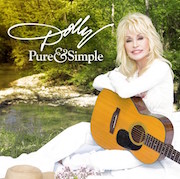Throughout her career, Dolly Parton, like plenty of image-conscious celebrities, has refrained from broadcasting her political views. But in a recent interview with the New York Times, Parton made some passing comments about the American presidential race. “I personally think a woman would do a great job,” she said. “I think Hillary’s very qualified. So if she gets it, I’ll certainly be behind her.” Parton’s comments caused a mild uproar among her fan base, which, one assumes, features a sizeable contingent of politically conservative Americans that dislike Clinton. Two weeks after the interview, Parton took to Facebook to clarify her statements: “I have not endorsed Hillary Clinton nor Donald Trump. I try not to get political… I have not decided who I’m voting for.”
It’s true that Parton never officially endorsed Clinton, but her passive approval of the Democratic candidate correlates to this year’s unprecedented political mix-up. The Republican party is in disarray: although Trump has won plenty of support from the people, politicians within the party have repeatedly voiced frustration, some going as far as to endorse the opposition. On the heels of Clinton’s somewhat moderate platform, the Democrats have been courting disenchanted Republican voters. At last month’s Democratic National Convention, speeches from Clinton, Tim Kaine, and the Obamas <a href="http://www.vox.com/2016/7/28/12306780/democratic-convention-speeches-patriotism-rhetoric‘ target="new">drew from rhetoric that one might describe as traditionally “Republican”: “American exceptionalism and greatness, shining city on hill, founding documents, etc.,” tweeted right-wing writer Rich Lowry—“they’re trying to take all our stuff.” Given Trump’s amoral behavior, the Democrats taking Republican “stuff”—American-ness, family values, religion—was transparent but effective, if a little bizarre.
As the title of Dolly Parton’s latest (and forty-third) studio album suggests, Pure & Simple is a relatively stripped-back collection of songs—a return, according to Parton in the press release, “to my roots.” The twelve tracks forsake the ornate orchestration found throughout Parton’s oeuvre; instead, we get “purer,” “simpler,” “roots”-type recordings like the title track (acoustic guitar, drums, mandolin lead) and ‘Say Forever You’ll Be Mine’ (just guitar and fiddle). Electric guitar, pedal steel, keys, and backup singers enter the fray on several tracks, namely the raucous ‘Head Over High Heels’, but the title’s promise of simplicity nevertheless holds true (at least until densely saccharine ‘Forever Love’). The instrumentation, forms, and concepts are familiar: “pure” country, as it were. Lyrically speaking, love, companionship, and family (‘Mama’) represent persistent threads; even more so, though, the passing of time seems to be Parton’s chief concern. There are countless discussions of “forever,” the ages, changing over the years, being young, being old.
Although the singer professes on ‘I’m Sixteen’ that she feels like a carefree teenager (aging is a choice, she notes), Parton turned 70 this year. The musical shift to “pure and simple” aesthetics is common among elder statespeople of popular music; in country, Johnny Cash, Loretta Lynn, and more have made similar late-career moves. For the extravagant, admittedly “impure” Parton, it’s a more drastic stylistic shift—still, like Cash’s American Recordings or Lynn’s Van Lear Rose, Pure & Simple aims to highlight Parton’s abilities as a top-notch singer, songwriter, and interpolator, in addition to being a lovably outsized personality. Listening to Pure & Simple, few will argue that Parton is all those things. The album teems with alternating moments of heart-wrenching sincerity and laugh-inducing swagger, a mixture Parton has owned for decades. A return to her roots, as in “Make Dolly Great Again”? No, Dolly was always great—just like America, right?
In discussing time, Parton often traffics in moral absolutes: no matter the year, no matter the trouble, we’ll be together, this is right, thou shalt not, forever and ever. While Parton’s idealism is par for the course on a pop-country record, given the current year, the current trouble, her moralistic words and images pack an unexpected punch. Pure & Simple quietly reflects 2016’s nationwide shift in values—our uncomfortable mixing of red and blue. Featuring a white-clad Parton sitting in the woods on its cover, the album purports to be more “real,” more “authentic”—in line with the idealised traditional, homespun American values that we heard from Republicans in previous years but, now, come from the other side. In 2016, whether she likes it or not, Parton signifies different cultural concepts than she once did. What, in the midst a Trump-led GOP, does “pure and simple” look like?
Parton thinks a woman ought to be president one day; in the past that was a playful notion, today it’s a distinct possibility. Her idealism fractures in the face of concrete reality: “I have not decided who I’m voting for.” The American people—to whom Parton, in a proselytising mood perhaps, is playing the most live shows (60) that she’s played on a North American tour in 25 years—are likewise looking to their values, reaching out for absolutes, for answers, and coming up empty or split. “Anything that feels this right can’t be that wrong,” Parton sings. But, in 2016’s America, what feels right? Compromising our beliefs, our morals? Voting for the lesser of two evils? Ultimately, Parton’s line comes across as “can’t be that wrong.” She tempers her absolute, landing in a subjective grey area. Our moralism unmoored, where do we turn?


